Thanks to Donald Giddings, founder and editor in chief at Green Living Zone, for this guest blog post:
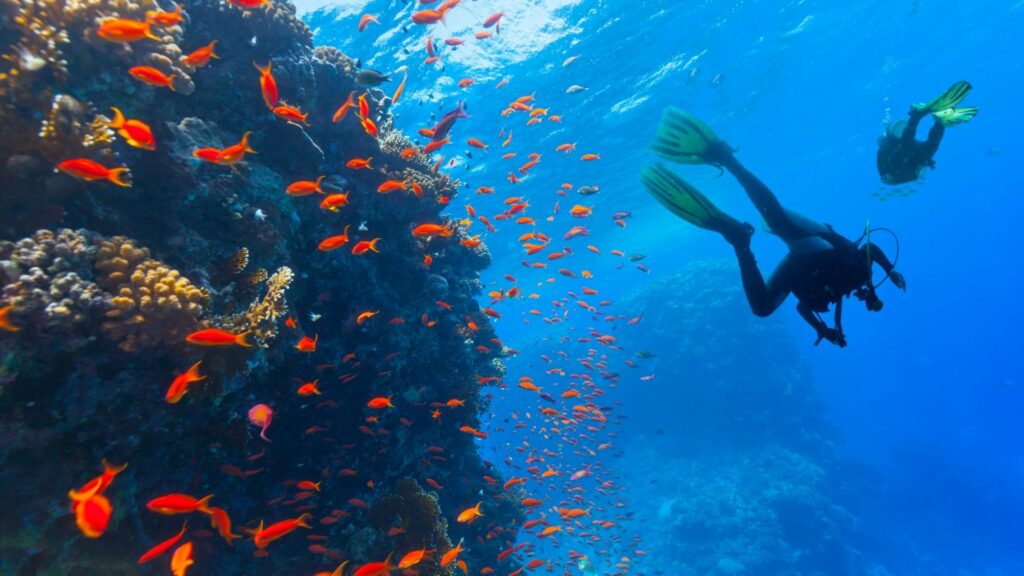
Coral reefs are full of beautiful plants and animals that are truly one of a kind. Each year, people from all over the world flock to view the unique and beautiful ecosystems of coral reefs by scuba diving. It is important to understand the impact of scuba diving on a coral reef (dos and don’ts) in order to help protect and preserve the environment.
Though snorkelling can be a great way to view coral reefs and learn all about them, it is important that it is done responsibly. It is our responsibility to make sure that we do everything we can to allow coral reefs to thrive. Sadly, coral reefs experience damage every year because of people, so it is vital for their preservation that scuba diving is done with great care.
diving dos and don’ts: our Impact On Coral Reefs
If you ever have the chance to scuba dive, you don’t want to pass it up as it is an amazing experience. However, before you go, it is important to know the dos and don’ts in order to not harm any plant and animal life on the coral reef you visit.
Coral reefs are living organisms, so it is vital that scuba divers treat the reefs and all the plant and animal life around it with respect. Every year coral reefs become more and more affected by human interference. By following these dos and don’ts, you can help ensure the protection of these amazing organisms.
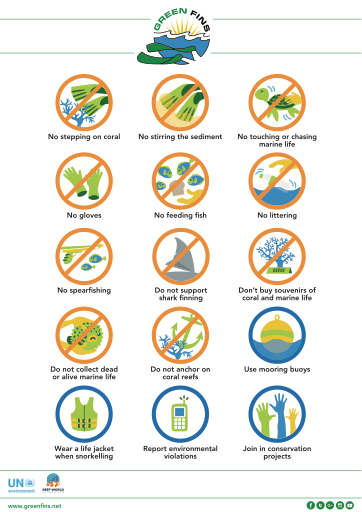
Impact Scuba Diving Has on Coral Reefs
Since coral reefs are living beings, they are susceptible to damage by scuba divers who visit them. Touching and kicking coral reefs can cause them to break off and become damaged. In addition, when sand gets disturbed it can cover and smother the reefs.
Chemicals can also be damaging and destructing to coral reefs, so it is important to not dump anything harmful into the ocean. Littering is also detrimental to the reefs and the wildlife around them. When coral reefs are destroyed, it also takes away the homes of animals and plants.
Dos of Scuba Diving
When it comes to scuba diving, there are some important things you should make sure to do to protect the coral reefs and all the wildlife around them. It is important to do your part and be courteous of the environment while scuba diving.
Do Find a Reef-Friendly Business
While deciding where to go scuba diving, be sure to choose a business that is reef-friendly and that they are careful with their practices. A good scuba diving company will be eco-friendly and put the safety of the ecosystem and customers above everything else.
Responsible diving tourism can be very beneficial for the local community. It can bring in money to allow small, local businesses to thrive which is great for the people that live there. By encouraging responsible scuba diving, you are also creating ambassadors to help promote the protection and preservation of coral reefs.
Do Educate Yourself on Coral Reefs
Before you go scuba diving, be sure to educate yourself on coral reefs. It is important to understand the ecosystem of reefs and the role they play in ocean life.
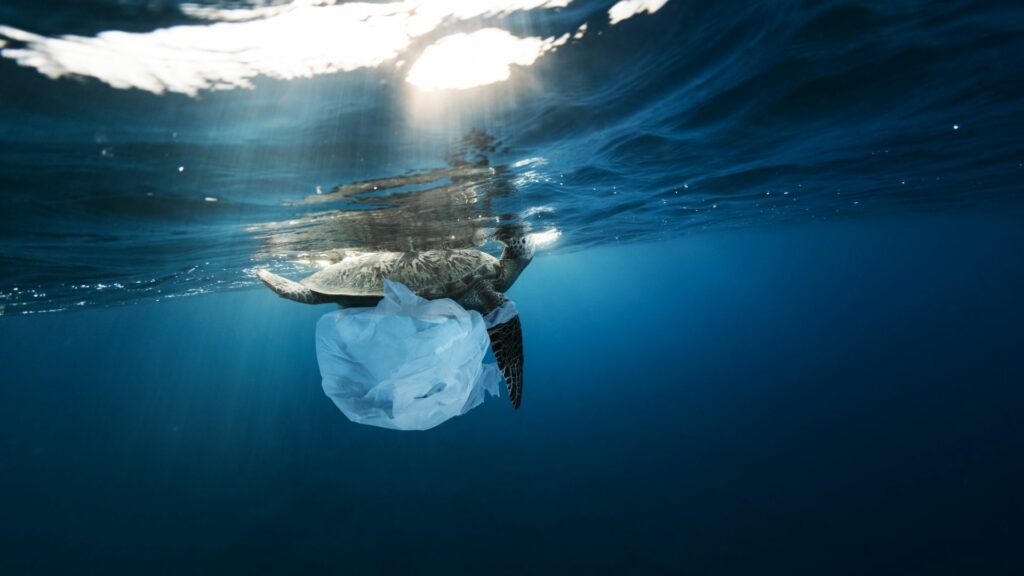
Do Pick Up Litter
Litter can be damaging to reefs and all forms of ocean life. If you see any litter while scuba diving, be sure to pick it up to help preserve ocean life.
Do Make Sure Your Friends and Family Know to Respect Coral Reefs
If you are going scuba diving with friends or family, be sure they educate themselves on coral reefs and know the importance of respecting reefs and ocean wildlife.
Don’ts of Scuba Diving
In addition to knowing what to do while scuba diving, it is also important to know what not to do. Coral reefs are fragile and human interaction can have a negative impact on them.

Don’t Touch Coral Reefs, Animals or Plants
Though it may be tempting, refrain from touching the reefs, animals, and plants you see in the ocean. Touching corals can harm them, stress them out, and spread bacteria. In addition, some ocean life is venomous and may sting you if they feel threatened by your touch.
Don’t Put Your Fins Down or Step on Any Coral
It can be tempting to put your fins down and walk around the bottom of the ocean but that can be damaging to corals. Not only can walking on the corals cause damage but disturbing sand can smother the reefs.
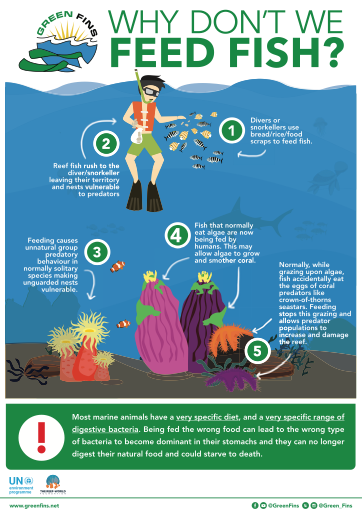
Don’t Feed The Fish or Any Other Animals
Not only can the food you feed fish or other animals be harmful to them but it can cause them to become more aggressive towards other divers. Be sure not to throw any food into the ocean.
Don’t Chase or Harass Any Animals
The ocean is home to some truly fascinating animals. It is important to respect them and never chase or harass them.
Scuba Diving and Coral Reefs
Scuba diving can be a great way to see ocean life. However, it is vital to take precautions to ensure you are not negatively impacting coral reefs or any other wildlife.
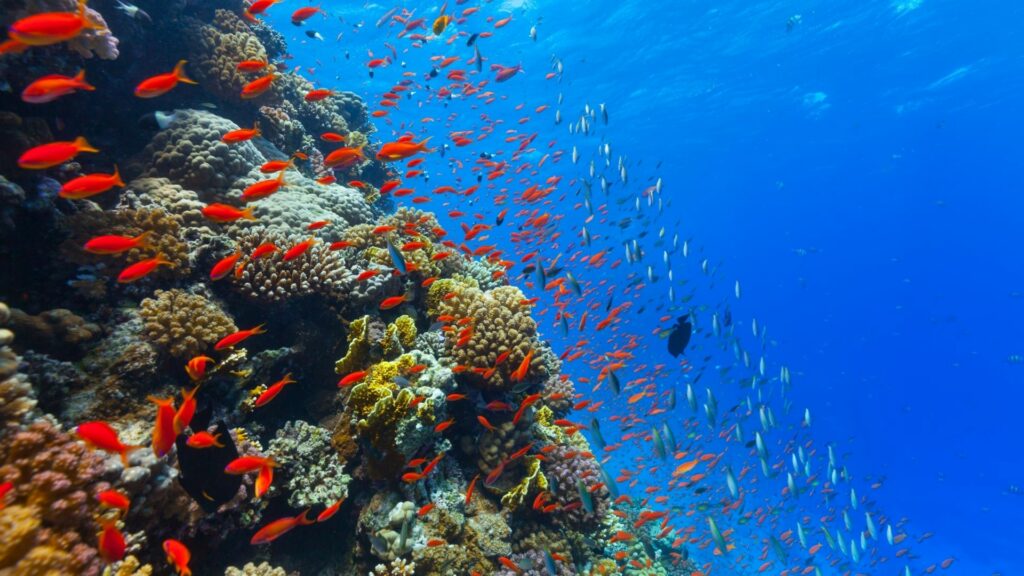
Thanks to Donald for his guest post on diving dos and don’ts

Donald Giddings is founder and editor in chief at Green Living Zone. A lifelong sustainability enthusiast, Donald is always looking for the best way to live in harmony with nature. When he is not trying out new eco-friendly recipes, he writes engaging content about green, sustainable ways to maintain your home, body, and soul, readily sharing his abundant experience with other green living aficionados.

